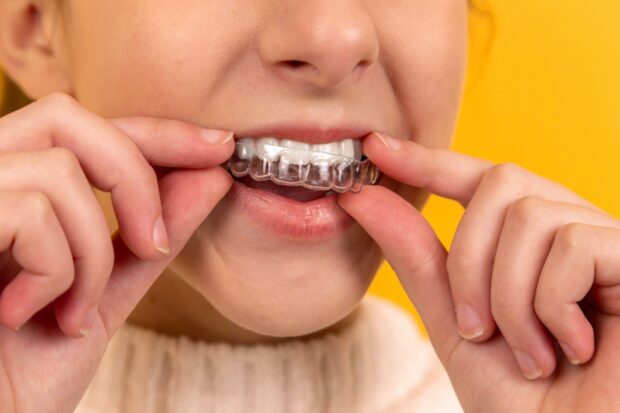Proper maintenance of strong teeth is a life-long endeavor. From the arrival of a baby’s first tooth all the way up to their twilight years, a healthy smile will play a vital role for both general well-being and positive self-esteem.
However, it takes more than a simple brush every morning and evening to keep teeth strong and free of cavities throughout a person’s life. There are a wide variety of healthy habits a person can adopt along with a good daily dental hygiene routine to avoid the painful and often embarrassing consequences of cracked tooth syndrome or other common conditions.
This guide aims to explore a few of the simplest ways to ensure individuals can maintain a dazzling and healthy smile by examining scientifically-backed techniques to keep teeth strong.
Essential Brushing Habits for a Healthy Smile
If the key to a healthy smile is strong teeth that are free of cracks and cavities, regular brushing more than once a day is the absolute minimum of good oral hygiene. How a person brushes their teeth can make all the difference to oral health along with what type of toothbrush they use and which brand of toothpaste.
It pays to invest in quality products to ensure teeth are appropriately cleaned and it’s important to remember that brushing too vigorously can erode a tooth’s natural enamel. While brushing, neglecting to also brush the tongue and the teeth at the back of the mouth can allow bacteria and accumulated particles of food to weaken teeth.
For fresh breath after every brush and much lower chances of contracting gum disease, pay attention to every area of the mouth, floss often and replace old brushes every three months.
Lifestyle Influences that may Weaken Teeth
Thanks to modern tobacco packaging standards, most individuals should be aware that smoking and other habits related to tobacco products can have a significant impact on oral health. These habits can yellow teeth and greatly increase a person’s chances of suffering the effects of gum disease and specific varieties of mouth cancer.
Anyone who takes the health of their smile seriously should avoid smoking or examine strategies to quit sooner rather than later. Teeth can become cracked, chipped or damaged from a variety of physical activities too. If a person leads an active lifestyle that includes participating in contact sports like rugby or hockey, a mouthguard should always be used to protect teeth from sudden impacts and trauma.
Individuals who have the unfortunate habit of using their mouth to open bottles or packages should avoid doing so as this behavior is likely to weaken teeth over time.
Proactive Measures to Prevent Tooth Cracking
Anyone who has felt the painful consequences of a cracked tooth will be well aware of how important it is to avoid biting or chewing on hard foods and objects. To correct a cracked tooth may require multiple visits to the dentist and extensive and costly treatments.
To prevent cracking a tooth while eating, exercise caution when biting down on hard candies, ice cubes, popcorn kernels and any other foods that require excessive force to break down.
The Importance of Dental Check-ups
It should come as no surprise that annual dental visits are an essential habit well worth maintaining to ensure good oral health throughout a person’s life. A caring and qualified dentist can examine issues, provide preventative treatments and identify the early signs of weak or unhealthy teeth.
Ensuring teeth are professionally cleaned as often as necessary can also help a person prevent costly and painful complications from plaque and tartar build up.
By thoroughly examining individual teeth and gums using specialized tools or an X-ray, dentists can screen a person for early signs of serious diseases related to a person’s mouth, gums and jaw.
Finding and treating serious concerns early and providing helpful advice on which dental products will work best to prevent future problems can go a long way in ensuring teeth remain strong and well-cared for.
Protecting Teeth from the Effects of Grinding
If an individual suffers from an overload of stress, suffers from sleep apnea or takes certain medications, they may find that they grind their teeth. This can be a serious concern as the physical effects of grinding, or bruxism, may significantly weaken teeth over time.
If an individual thinks they might be grinding their teeth in their sleep, it’s worthwhile to seek dental advice and invest in a nightguard.
Grinding can lead to sensitivity, cracks or a breakdown of enamel and a nightguard can provide a much-needed protective barrier to reduce damage caused by friction. If stress is the most likely cause of this behavior, consider how relaxation techniques or stress management exercises may work to prevent teeth grinding in the future.
The Role of Diet in Safeguarding Dental Health
The food a person eats on a regular basis has a well-studied impact on oral health. To maintain strong, white teeth, it’s a good idea to avoid excessive amounts of sugary foods and beverages.
Ensure good levels of calcium are maintained by consuming fortified foods or by supplementing a diet with essential vitamins including vitamin D. It’s also important to stay hydrated throughout the day as water can help wash away food particles left over from meals.










![Daily Bite [Make]: Philly Cheesesteak Stuffed Bell Peppers](https://dashofwellness.com/wp-content/uploads/2013/01/Philly-Cheesesteak-Stuffed-Pepper-Daily-Bite-1-100x70.png)
